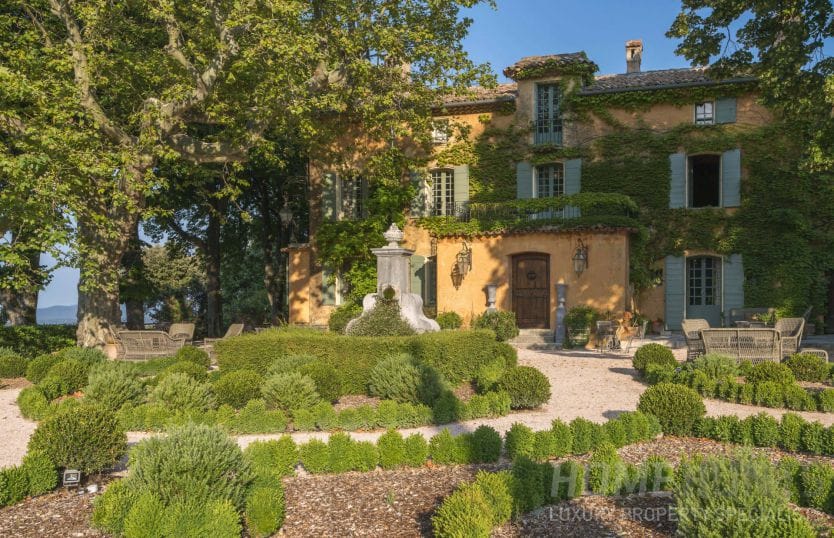The process of buying property in France moves fast, and you’ll exchange contracts early on. That’s why it’s so important to keep an eye out for common property buying pitfalls. Know which issues to tackle before signing the compromis de vente contract and putting down a deposit. Otherwise, you could pay more or get stuck with a home that has problems you didn’t anticipate.
Table of Contents
Prepare for Additional Costs and Exchanging Money
While the price of the home is the biggest expense you’ll have, there are additional expenses to consider. Budget for the notaire’s fee, which includes taxes, and the mortgage, solicitor and survey fees, too. Once you have an estimate of how much you’ll spend, you’ll need to exchange your money.
Consult with a foreign exchange specialist. Banks tend to have high rates, and a specialist will be able to get you the lowest rate possible. You can also include a currency contract in the home buying agreement. This will freeze the exchange rate.
Pay the Notaire, Not the Seller
When buying property in France, you’ll use a notaire. The notaire is an employee of the French government. They will collect any taxes you owe during the property buying process. You and the vendor will likely share the notaire, but if you’d prefer, you can appoint your own notaire. You should never give your money to the seller. Instead, give it to the notaire (or to your estate agent, if you have one).
Avoid Deals That Claim to Save You Money
Never agree to a deal with the seller where you pay less on-the-books in order to save on taxes. Any amount that you pay to the seller should be legal and declared; don’t give the seller money “under the table.” This type of deal may save you money in taxes at first, but if you decide to sell the property, you’ll have to pay more in capital gains taxes. There will be a wider gap between the price you declared you paid and how much you sell the home for.
Choose the Best Inheritance Strategy
According to French law, you have to leave part of your estate to your children; if you don’t have children, it can go to your parents. If you don’t want to leave part of your estate to your children or parents, get advice from a professional. There are ways to get around French inheritance law, and a professional will guide you so you face minimal legal and tax implications. Your chosen strategy has to be worked out before purchasing the property.
There are also inheritance tax implications to consider. If you’re unmarried, you may have to pay as much as 60% inheritance tax. It’s possible to avoid this by having a civil partnership. However, consult a professional before taking this route.
Be Careful When Buying a Property in Development
If you’re purchasing development property, work with a reputable developer. Developers in France can’t get funding until a set number of properties have been signed up for. If they don’t have funding yet, see how far along the development project is. Does the developer have planning permission yet? Have they done any of the work?
You should never pay in full at the beginning of the process. Instead, payments for development projects are made in stages. You shouldn’t have to make the final payment until the property is totally finished. Your contract can also include a penalty clause in case the developer finishes later than expected.
Get the Correct Property Surveys
Structural surveys aren’t required in France, but it’s still a good idea to have a professional survey your home before you buy it, especially if you plan to renovate the home. If you feel more comfortable hiring a surveyor from your home country, just ensure that they have experience with French property.
A structural survey is different from a diagnostic survey. The seller is legally required to give you a diagnostic report, also called a Dossier de Diagnostic Technique (DDT). This type of survey accounts for asbestos, electric and gas installations, energy efficiency, industrial and natural risks, lead paint, septic tanks and termites.
Make sure that you’re not getting an outdated diagnostic report. Sometimes, the seller’s property agent will give you a diagnostic survey that’s a few years old. Be wary in case they try to hide issues with the home and secure a higher selling price.
Know What’s Required for Renovations
If you’re purchasing a property that you hope to renovate, you’ll need an overview of the cost and timeline. Get a minimum of two quotes before moving forward. Decide what work, if any, you’ll handle yourself, and if you’ll need to hire an architect, a project manager, specialist tradesman or builder, etc. Depending on how large the renovation is, you may be legally required to hire an architect. Furthermore, you’ll need to get planning permission. Include a condition in the sales contract that the purchase is dependent on getting planning permission.
Home Hunts are here to help you to guide you through the buying property and steer you away from any property buying pitfalls . If you would like to speak to one of the team to discuss your needs or just to have a chat about the market, you can call us on +33 970 44 66 43 or send us a mail to info@home-hunts.com. If you just want to browse through thousands of beautiful French homes, visit our website at www.home-hunts.com or follow us on Facebook or Instagram.




